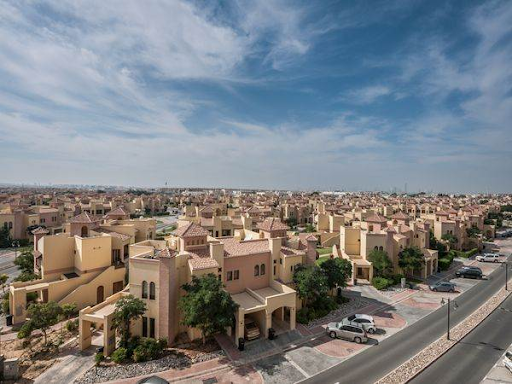Introduction to Gated Communities
Imagine a sanctuary where you feel secure, where every amenity is at your fingertips, and where every street corner feels familiar. That’s the essence of a gated community. But what is it that makes these havens so appealing, especially in a metropolitan hub like Dubai?
What are Gated Communities?
Gated communities are housing estates with restricted access, ensuring that only residents and their guests can enter. They’re often enclosed by walls or fences, with security personnel manning the entrances. These communities provide not just homes but also shared amenities such as swimming pools, gyms, parks, and sometimes even schools and shopping centers. They’ve become synonymous with luxury, comfort, and security.
Why Are They Popular in Dubai?
- Safety First: Dubai, with its global prominence, attracts people from all walks of life. In such a melting pot, many prioritize security. Gated communities offer that added layer of safety, ensuring peace of mind.
- A Lifestyle Choice: The lavish lifestyle associated with Dubai is not just about luxurious cars and towering skyscrapers. It’s also about the quality of life, and gated communities promise an upscale, all-inclusive lifestyle.
Benefits of Living in Gated Communities
One might wonder: with the whole of Dubai being as advanced and luxurious as it is, why opt for a gated community? Well, here’s what these secluded sanctuaries have to offer:
Enhanced Security
The primary allure of a gated community is its promise of security. With monitored entrances and often round-the-clock security personnel, unauthorized access is nearly impossible. Residents can enjoy their daily jogs, let their kids play outside, and leave their homes for vacations without a second thought.
Premium Amenities
Have you ever dreamed of having a gym right down your street? Or a park where you know every other person? Gated communities offer these and more. From state-of-the-art fitness centers to serene parks, from exclusive clubs to dedicated kids’ areas, the amenities are both premium and personalized.
Close-Knit Community Feel
In the hustle and bustle of city life, it’s easy to feel isolated. Gated communities, with their limited number of residents and communal amenities, promote social interactions. Neighbors become friends, and the community often feels like one big extended family.
Property Value Appreciation
Investment-wise, properties in gated communities often see better appreciation. The reasons are clear:
| Factor | Description |
|---|---|
| Quality of Infrastructure | Well-maintained roads, utilities, and communal areas. |
| Demand | The allure of security and luxury drives demand upwards. |
| Exclusivity | Limited properties and a premium feel boost property values. |
Drawbacks of Gated Communities
While the allure of gated communities is undeniable, they do come with certain disadvantages. It’s essential to weigh these against the benefits to make an informed decision.
Costs Involved
Living in a gated community often comes with a price tag. Not just in terms of the property’s cost, but also the associated charges. Maintenance fees, homeowners’ association dues, and the premium for added facilities can all add up. It’s crucial to factor in these costs when considering such an investment.
Potential Isolation
For some, the seclusion of a gated community is a blessing. For others, it might feel a bit too isolated. Living in such areas can sometimes make residents feel disconnected from the broader city life. Some miss the hustle and bustle, the chance encounters on a busy street, or the myriad of unexplored shops and cafes outside.
Homeowners’ Association Rules
While maintaining uniformity and order, the rules set by homeowners’ associations can sometimes feel restrictive. There might be guidelines on house colors, landscaping, parking, and even holiday decorations. While these ensure a cohesive community look, they might impede personal expression.
Top Gated Communities in Dubai
Dubai boasts of some of the most luxurious gated communities in the world. Here’s a peek into a few:
- Arabian Ranches: Known for its lush landscapes, world-class amenities, and a golf course to boast, Arabian Ranches epitomizes luxury living.
- The Springs: A tranquil and luscious community, it’s perfect for families, offering scenic lakes and community pools.
- Palm Jumeirah: More than just the world’s most famous man-made island, it’s a symbol of Dubai’s grandeur with waterfront properties and unparalleled views.
Conclusion: Is a Gated Community Right for You?
Making a decision about where to live is as much about understanding the place as it is about understanding oneself. Gated communities offer a blend of security, luxury, and community living. But, they also come with their set of rules and costs. Ultimately, it’s about what you prioritize more: the exclusivity and security or the freedom and connection to the broader city. In a city as diverse and dynamic as Dubai, the choices are endless.
FAQs
- Are gated communities in Dubai only for the uber-rich?
No, while many gated communities cater to luxury living, there are a variety of options available to suit different budgets. - Do gated communities restrict guests’ entry?
Most gated communities have security protocols. Guests might need to be pre-registered or residents might have to confirm their entry. It ensures the safety of the residents. - How do I choose the right gated community for me?
Consider factors like location, amenities offered, the community vibe, your budget, and any restrictions or rules in place. - Is the investment value of properties in gated communities always higher?
While they often appreciate better than standalone properties, market factors also play a significant role. It’s best to consult with a local real estate expert. - Can I rent out my property in a gated community?
Yes, many property owners in gated communities choose to rent out their homes. However, the homeowners’ association might have specific guidelines that need to be followed.








